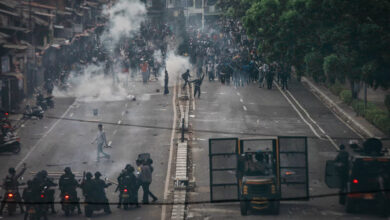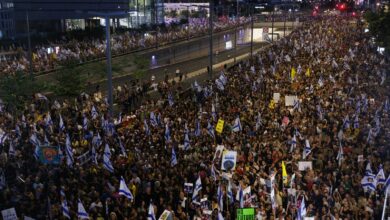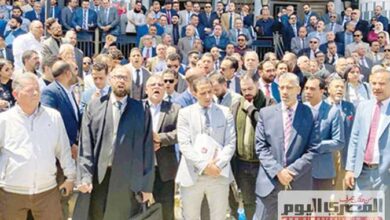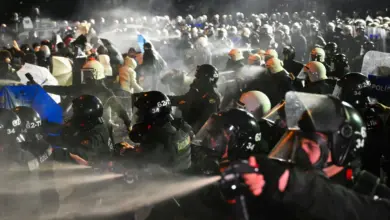National opposition groups demanded that reform leader Mohamed ElBaradei form a transitional government, according to a statement issued by the Democratic Front Party.
The statement said that following President Hosni Mubarak's imminent departure, ElBaradei should be in charge of negotiating the next steps–including devising economic and social reforms, releasing all detainees, and lifting emergency rule–towards constructing an interim government.
ElBaradei returned to Cairo in 2009, after a long career with the International Atomic Energy Agency, to lead a campaign demanding comprehensive political and constitutional reforms. The campaign presented itself in the form of a nationwide collection of signatures supporting seven main political demands.
In the meantime, members of the shadow parliament–which was put together after the November 2010 parliamentary elections by a group of opposition leaders and former MPs–were also deliberating over the potential form an interim government.
The National Democratic Front spokesman, Ibrahim Nawar, told Al-Masry Al-Youm that ElBaradei supporters are in conversation with members of the shadow parliament to coordinate demands for an interim government.
On Sunday, Muslim Brotherhood members were visible in the downtown Cairo's Tahrir Square, which has been a site of continuous protests since Tuesday's day of anger.
In a phone interview Brotherhood leader Mohamed Moursi told Al Jazeera that members of the banned movement have been released from political prisons en masse, including himself and leaders who were helped out of their cells by protesters.
The Brotherhood also ordered the deployment of organized committees to protect neighborhoods.
Their stance towards the interim government remains unclear.
Judges, who were particularly vocal about the independence of the judiciary in 2005, joined the Tahrir demonstrations on Sunday. They also joined talks about the interim government.




